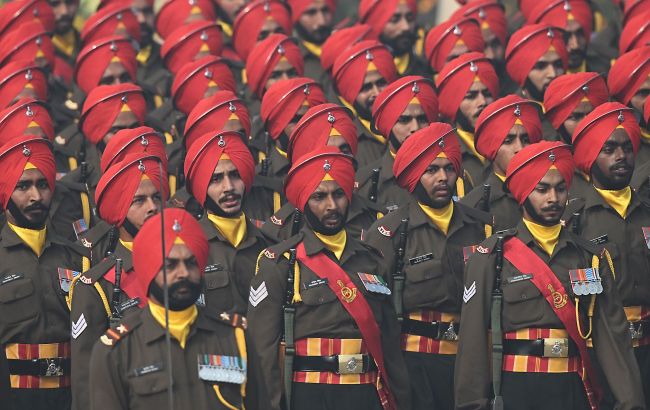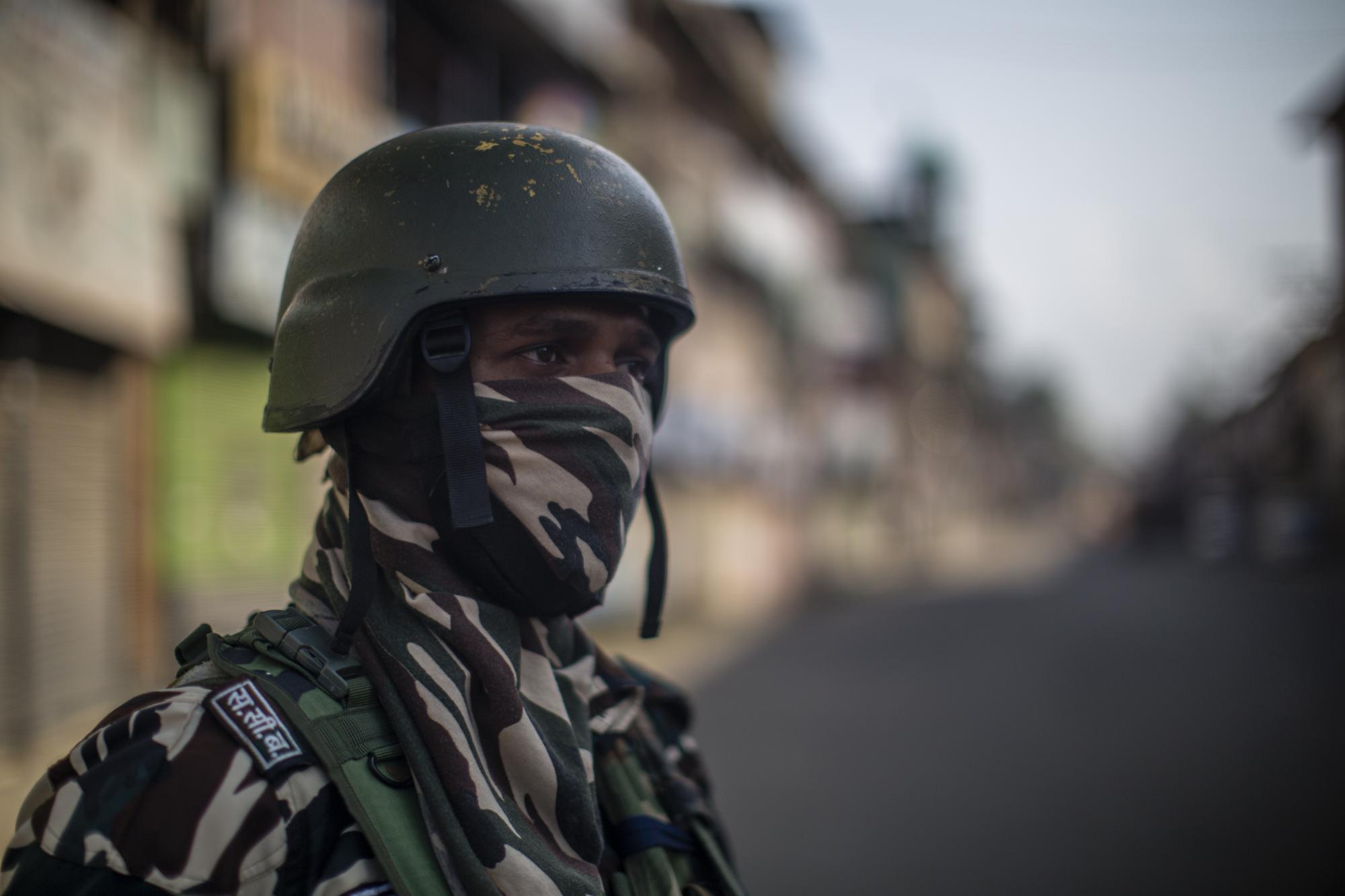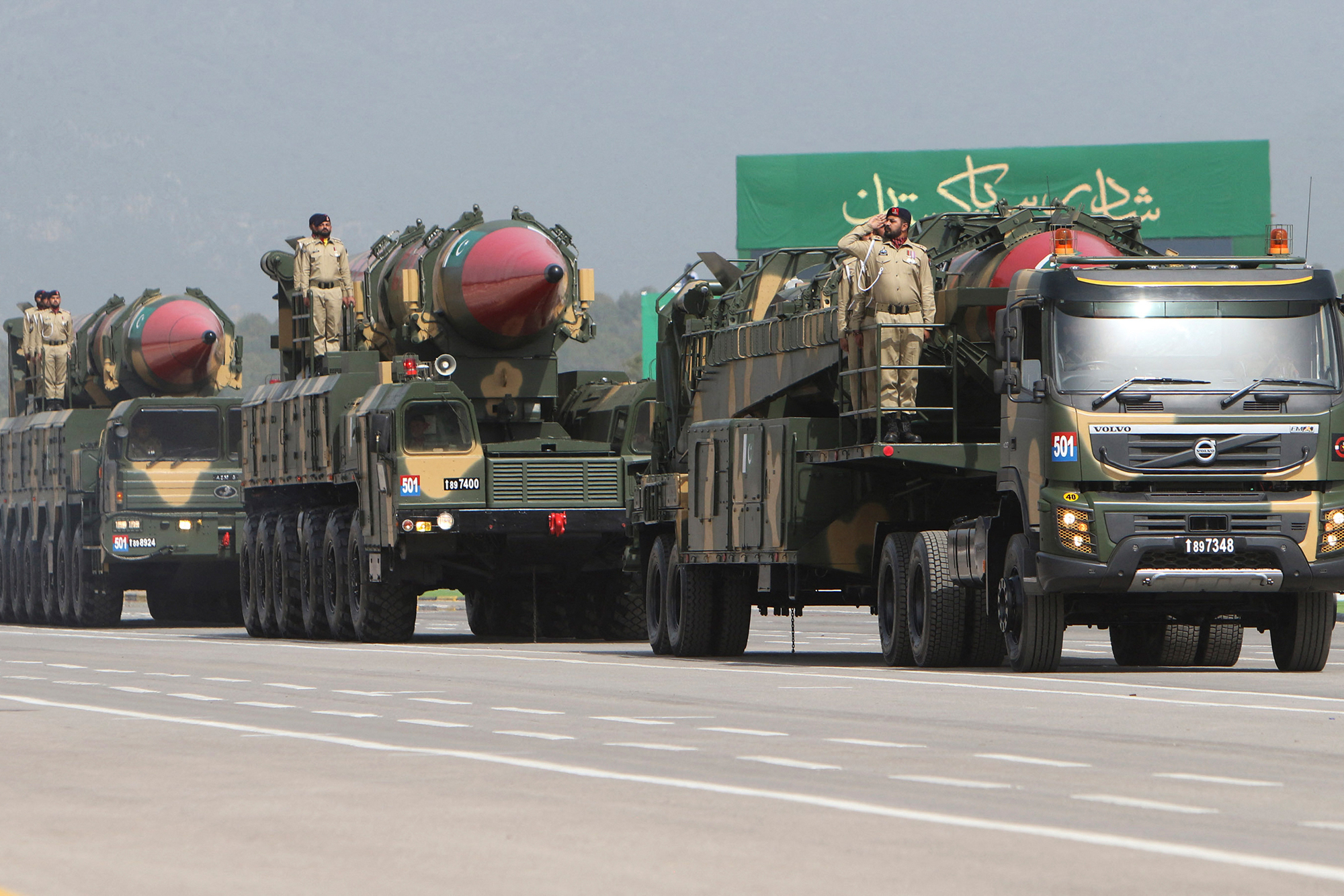On the brink of war? What’s behind India-Pakistan conflict
 Photo: India has threatened Pakistan to cancel the truce (Getty Images)
Photo: India has threatened Pakistan to cancel the truce (Getty Images)
A serious conflict has erupted between India and Pakistan following a deadly militant attack on a group of tourists in the disputed Kashmir region. The two nuclear-armed nations have exchanged threats of war, and the first clashes have already occurred along their shared border.
RBC-Ukraine explains below what is happening between India and Pakistan and how the Kashmir region is involved.
What happened between India and Pakistan
On Wednesday, April 23, militants opened fire on a group of tourists in the Indian-controlled part of Kashmir, marking the deadliest attack in years. More than 20 people were killed.
A little-known militant group calling itself Kashmir Resistance claimed responsibility, citing anger over the settlement of "outsiders" in the region and alleged demographic changes. Over the past two years, nearly 84,000 non-local Indian citizens have reportedly been granted residency in Kashmir. The group also issued violent threats on social media against those attempting to "settle illegally" in the region.
Indian authorities blamed Pakistani militants operating under Islamabad’s protection. Pakistan denied any involvement, calling the incident a local uprising.

Photo: Conflict erupted between India and Pakistan (Getty Images)
However, the very next day, India made a number of decisions against Pakistan: it closed a border crossing in the Kashmir region, canceled issued visas, and restricted the issuance of new ones, and expelled Pakistani diplomats.
The conflict escalated further when India withdrew from the 60-year-old Indus Waters Treaty, which had ensured Pakistan’s access to water from major rivers including the Indus, Jhelum, and Chenab.
New Delhi also hinted it could revoke the 2021 ceasefire agreement with Pakistan. India’s Defense Minister warned that if attacks continue, the country reserves the right to respond without restraint.
In response, Islamabad closed its own border post in Kashmir, expelled Indian diplomats, gave Indian citizens 48 hours to leave the country, and shut its airspace for all Indian airlines.
In addition, Pakistan has issued an ultimatum to India over water, effectively threatening war. Its military has been placed on high alert.
Islamabad declared that any attempt to halt or divert water flow lawfully belonging to Pakistan under the Indus Waters Treaty will be considered an act of war.
Tensions on the ground peaked today, April 25, as Indian broadcaster News18 reported a gunfight between Indian and Pakistani troops along the Line of Control in Kashmir.
What is the Kashmir region and why are India and Pakistan in conflict over It
Kashmir is a disputed region in the northwestern part of India that has remained a flashpoint between two nuclear powers for more than 70 years. After gaining independence from the British Empire in 1947, Kashmir became the subject of a territorial dispute. India currently controls about 55% of the region, Pakistan roughly 35%, and the rest is under Chinese control.

Photo: India and Pakistan have a territorial dispute over Kashmir (Getty Images)
India and Pakistan have fought three wars, two of them over Kashmir. India considers the region an integral part of its territory, while Islamabad insists the region’s Muslim population has the right to self-determination or unification with Pakistan.
In 2019, India revoked Kashmir’s special autonomous status, sparking a deep crisis in relations with Pakistan and triggering widespread protests, periodic armed clashes, and cross-border shelling. The tensions lasted until 2021, when New Delhi and Islamabad reached a ceasefire agreement.
Could war break out between India and Pakistan?
India and Pakistan have already exchanged serious threats of military action. Both nations possess nuclear arsenals, meaning any conflict between them carries the risk of a nuclear war in the region.

Photo: India and Pakistan have nuclear weapons (Getty Images)
However, Natalia Butyrska, an expert on East Asia, Master of Foreign Policy, believes both sides are likely to refrain from using nuclear weapons. As she said in a commentary to RBC-Ukraine's YouTube channel, India’s nuclear doctrine rules out a first strike.
"In my view, there will still be a regime of certain deterrence and understanding of the consequences between the countries. I hope this won’t lead to a major conflict, but will end in heightened tension that will eventually deescalate, allowing both sides to return to the status quo they previously maintained," Butyrska said.
However, a third player could enter the picture. China, whose relations with India are already tense and which has its own territorial claims in Kashmir, may side with Pakistan. In addition, they had border clashes in the past.
Global tensions are already at a boiling point, with Russia’s full-scale war against Ukraine in Europe and the escalating Israel-Iran conflict in the Middle East. A war between two nuclear states with a combined population of over 1.5 billion could push the world into unprecedented escalation. Still, there remains reasonable hope that the current escalation between New Delhi and Islamabad will end as a show of force, as it has in the past.
Historian and diplomat Roman Bezsmertnyi predicted in a commentary to the RBC-Ukraine's YouTube channel whether the world will stand aside from the conflict between India and Pakistan. Read more here.

